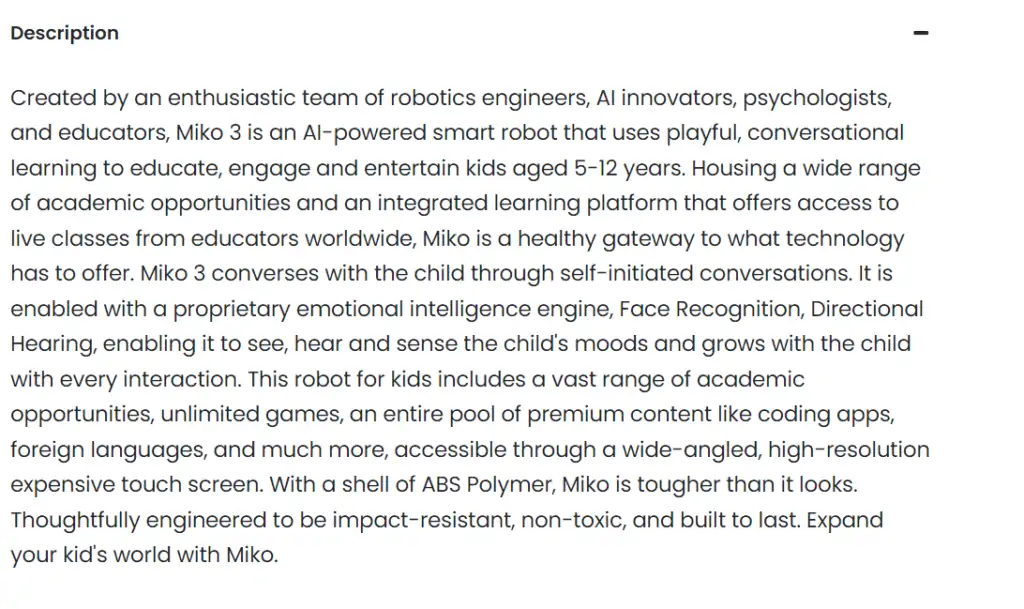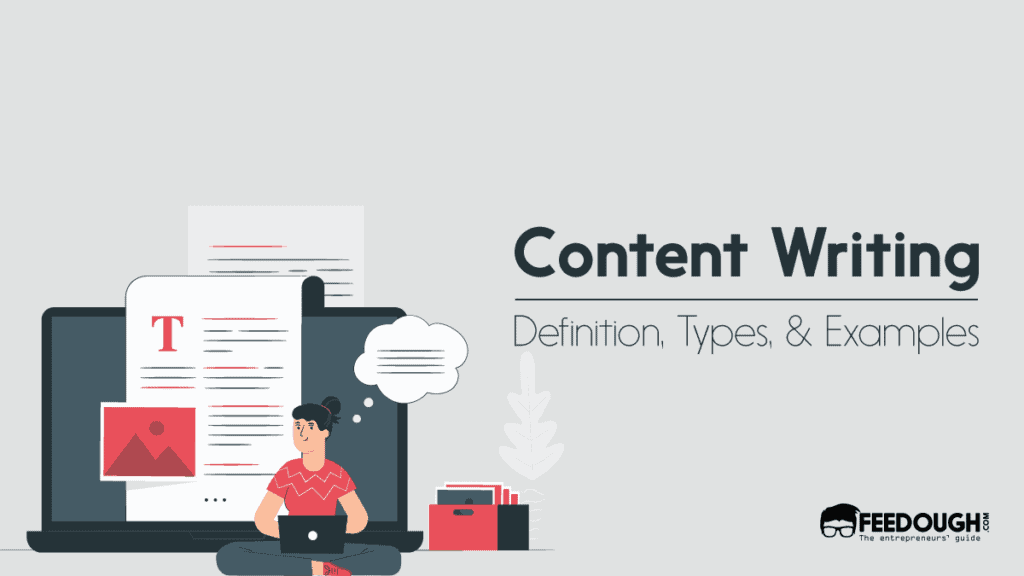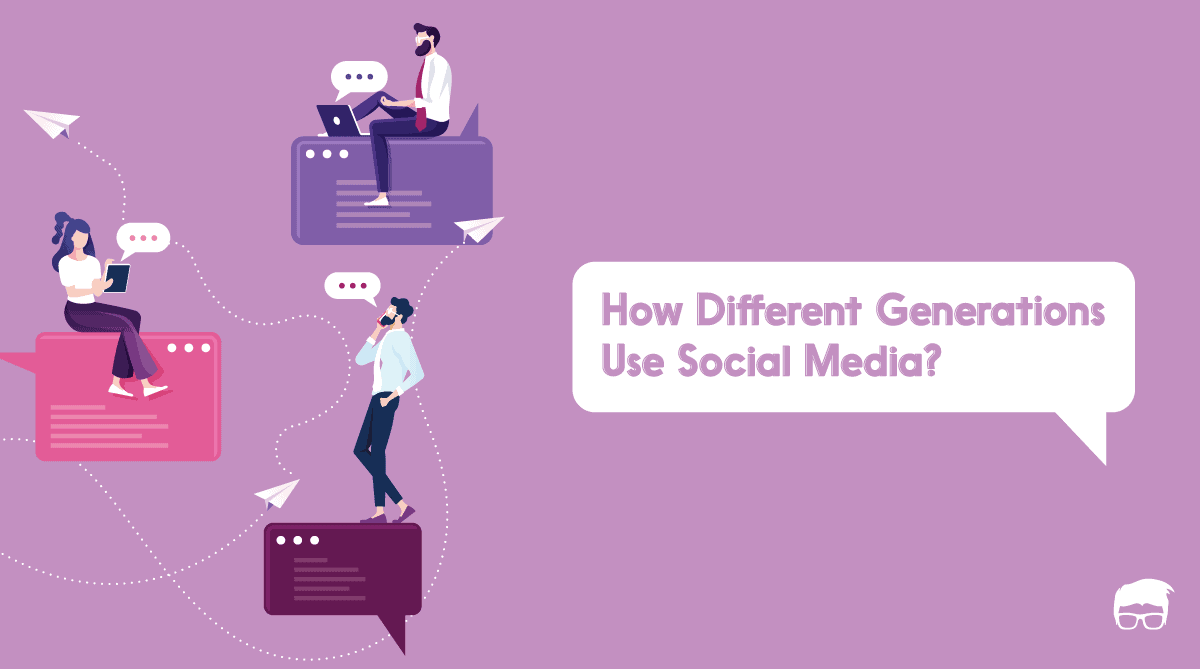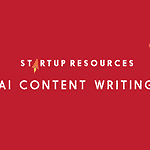Today, content is found in almost every aspect of modern life. People consume content through books, magazines, newspapers, blogs, websites, and even social media. In fact, an average person spends around 7 hours consuming online content, thanks to the internet.
With so much content being consumed daily, it’s no wonder that businesses are increasingly looking for talented writers to create content for their products, services, and websites.
This skill is in high demand, but what exactly is content writing? What all does it constitute? What does a content writer do?
Here’s a guide with a comprehensive overview of content writing, including its types, importance, and examples.
What is Content Writing?
Content writing is the creative process of generating content through careful planning and research, writing, and editing that is then published on online platforms with an aim to attract, engage, and retain readers.
This content writing definition can be simplified by breaking it into three key phrases:
- The creative process of generating content: Content writing involves creative thinking and a flair for writing. It’s not just about regurgitating information but about presenting it in an engaging and interesting manner.
- Careful planning, research, writing and editing: Any good piece of writing, be it an article, blog post, or even a social media update, requires careful planning, research, and editing. Without these elements, the content will likely be uninformative or poorly written.
- Aiming to attract, engage, and retain readers: The ultimate goal of content writing is to reach and resonate with the target audience.
No matter what the form, all content must aim to serve a purpose, be it providing information, educating the reader, or entertaining them.
That’s where a content writer comes in – to create content that is not only compelling but also relevant and targeted to the right audience.
Who Is A Content Writer?
A content writer is a professional writer who specialises in creating content for various online platforms.
This content can take the form of articles, blog posts, social media updates, web page content, product descriptions, or even marketing collateral.
The content writer can wear the hat of a copywriter, ghostwriter, SEO specialist, or even a social media manager – all depending on the type of content they’re creating.
However, their ultimate goal remains the same – to create compelling, relevant, and engaging content.
Types Of Content Writing
While most people think of content writing as one homogenous entity, the reality is that there are different types of content writing, each with its own distinct style, purpose, and audience.
Some of the most popular types of content writing include:
- Article Writing: Articles are usually informative pieces that are longer in length and provide detailed information on a particular topic. They are often published on digital publications or niche-oriented websites like Forbes, Huffington Post, and other such sites. Writing an article requires the content writer to have good SEO knowledge so as to ensure that the article ranks high on SERP.
- Copywriting: Copywriting is a type of content writing that aims to sell an offering or fulfil a marketing goal. It’s usually short, persuasive, and to-the-point. Copywriters use various techniques like powerful headlines, call-to-actions, and even emotional triggers to get the reader to take the desired action. Content pieces that fit into this type include landing pages, social media marketing content, and even ads.
- Press Releases: Press releases are official statements that are sent out to the media with an aim to generate press coverage for a particular product, service, event, or even an individual. Press releases are well-written and newsworthy with an aim to increase the chances of them being picked up by reporters and journalists.
- Technical Writing: Technical writing is a type of content writing that focuses on providing information about technical subjects and products. This type of content is usually lengthy, detailed, and full of industry-specific jargon. It’s aimed at those who already have some knowledge about the subject and are looking for more in-depth information. Technical writing can be in the form of user manuals, installation guides, FAQs, and more.
- Long-Form Content: Ebooks, case studies, whitepapers, and even research reports fall under the category of long-form content. These pieces are usually in-depth and provide detailed information on a particular subject. They are meant to be informative and as such, use formal language. These are usually used by businesses as lead magnets or even gated content to capture leads.
- Content scriptwriting: This type of content writing is used for creating content for videos, podcasts, or even infographics. Such content is usually short, sweet, and to-the-point with an aim to communicate the message as little time as possible.
- Professional writing: Professional writing is a type of content writing that involves interactions through professional communication channels such as business emails, memos, letters, and more. The style of writing is usually formal and covers a wide range of topics such as business proposals, marketing plans, employee communications, and more.
Importance Of Content Writing
With the boom of the internet and other internet-related industries, content has taken tremendous importance. Producing new and relevant content has become necessary to survive and stand out in the competitive market today.
Content writing is considered a necessary skill, as it is vital for a business to build and acquire customers. The following points elaborate on the importance of content writing in today’s business scenario:
- Essential For SEO: In order to rank high on SERP, businesses need to ensure that their website contains quality and relevant content. This is because Google and other such search engines use algorithms that consider various factors like keyword density, content length, and more to determine the ranking of a website.
- Key Lead Generation Tool: Quality content is an essential lead generation tool. By producing helpful and informative content, businesses can attract their target audience to their website and convert them into leads.
- Builds Credibility: In order for customers to trust a business, they need to see that the business is an expert in its field. This can be achieved by producing quality content that is relevant to the business and its products or services.
- Customer Retention: Customer retention is as important as acquiring new customers. Once a customer has been acquired, it is important to keep them engaged with the business. Good content writing skill is essential to produce various forms of content like email newsletters, blogs, etc., which can keep the customers coming back for more.
Content Writing Skills
Content writing is a skill that can be learned and perfected with practice.
However, there are certain inherent qualities that all content writers must possess:
- Writing and communication skills: The ability to communicate clearly and concisely is crucial for a content writer. They must be able to understand the requirements of the project and express their thoughts in a well-written and structured manner that is free from grammatical and spelling errors.
- Creativity: Creative thinking is essential for content writing as it helps to come up with new and interesting ideas that will engage the reader.
- Attention to detail: Good attention to detail ensures that all information is accurately represented in the final piece of content.
- Research skills: Researching and gaining information on the topic is vital to present in an understandable manner to the readers. The writers must also be aware of the latest trends in their area of expertise to produce relevant content.
- Time management: Writers need to be consistent and work within deadlines to publish content on a regular basis. They need to be fluent in prioritisation and time management to complete the project on time.
- Technical skills: Some forms of content writing may require the writer to have basic SEO and algorithm knowledge. They must also possess computer-operating proficiency to use different content management systems and content writing tools.
Content Writing Examples
Content writing can take many different forms. The following are some examples of content writing:
SEO Writing

SEO writing is a type of content writing that focuses on creating content that is optimised for search engines. This involves the use of relevant keywords and phrases that help to improve the visibility of the website on SERP.
The above example is a very basic explanation of how an SEO writer uses targeted keywords to improve the ranking of a website. However, SEO writing is not just about using the right keywords. It also involves creating quality content that is relevant to the business and its products or services.
Copywriting

Copywriting is all about using the right words to persuade the reader to take a particular action. The aim is to create content that is so compelling that it convinces the reader to head in the desired direction that fulfils the brand’s marketing objectives.
The above copywriting example is a marketing campaign launched by the popular dating site OkCupid with an aim to make the readers try the application.
Press Release
Press releases focus on developing newsworthy content that can be used by media outlets to generate publicity. The content must be well-written and structured in a way that is easy for the media to pick up and use.
The following is an example of a press release written to answer all the relevant questions about the new head of the CITI solutions centre.

Product Description

Product descriptions aim to provide the reader with all the necessary information about the product so that they can make an informed purchase decision.
It includes features, benefits, specs, and anything else that would be useful for the customer. The language is used tactically to persuade the reader to buy the product.
The image above is an example of a product description of a toy robot. It provides all the necessary features and information about the robot in a short and concise format and relies on pictures to convey the information.
Go On, Tell Us What You Think!
Did we miss something? Come on! Tell us what you think of this article on what is content writing in the comments section.
A lawyer dealing with corporate laws, a voracious reader and a keen writer. Satyaroop has a broad experience in the legal and startup industries and has worked with more than 15 companies, startups and legal publications on research-oriented projects. In his spare time, he enjoys reading fiction, biking and playing video games.




![How To Develop Your Startup's Blog? [Detailed Guide] Startup blog](https://www.feedough.com/wp-content/uploads/2022/09/Startup-blog.webp)



